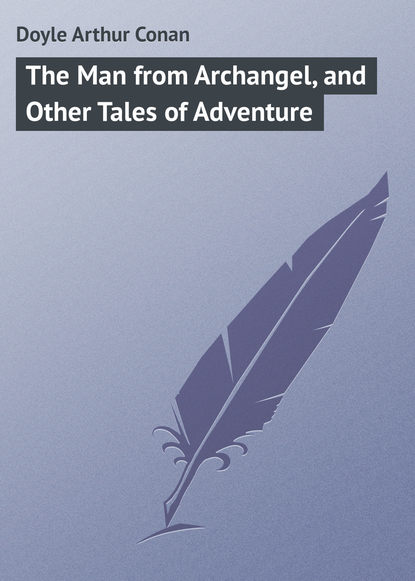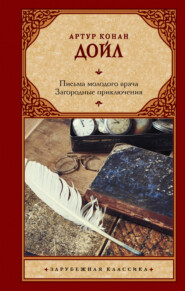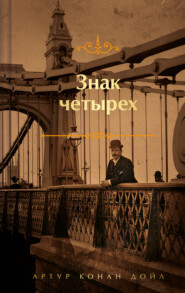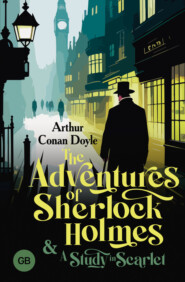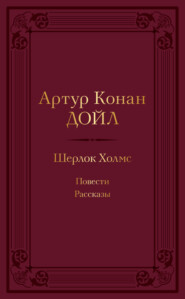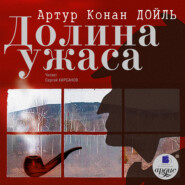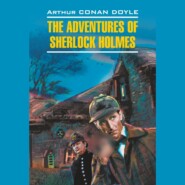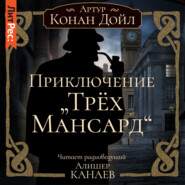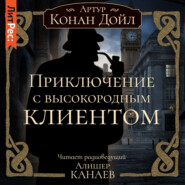По всем вопросам обращайтесь на: info@litportal.ru
(©) 2003-2024.
✖
The Man from Archangel, and Other Tales of Adventure
Настройки чтения
Размер шрифта
Высота строк
Поля
"Oh, is that all? It sounded much worse than that."
"It is a grave taint, but I trust that I shall not be a victim to atavism. I have laid these facts before you because they are factors which cannot be overlooked in forming your decision. May I ask now whether you see your way to accepting my proposal?"
He paused in his walk, and looked earnestly and expectantly down at her.
A struggle was evidently going on in her mind. Her eyes were cast down, her little slipper tapped the lawn, and her fingers played nervously with her chatelain. Suddenly, with a sharp, quick gesture which had in it something of abandon and recklessness, she held out her hand to her companion.
"I accept," she said.
They were standing under the shadow of the hawthorn. He stooped gravely down, and kissed her glove-covered fingers.
"I trust that you may never have cause to regret your decision," he said.
"I trust that you never may," she cried, with a heaving breast.
There were tears in her eyes, and her lips twitched with some strong emotion.
"Come into the sunshine again," said he. "It is the great restorative. Your nerves are shaken. Some little congestion of the medulla and pons. It is always instructive to reduce psychic or emotional conditions to their physical equivalents. You feel that your anchor is still firm in a bottom of ascertained fact."
"But it is so dreadfully unromantic," said Mrs. O'James, with her old twinkle.
"Romance is the offspring of imagination and of ignorance. Where science throws her calm, clear light there is happily no room for romance."
"But is not love romance?" she asked.
"Not at all. Love has been taken away from the poets, and has been brought within the domain of true science. It may prove to be one of the great cosmic elementary forces. When the atom of hydrogen draws the atom of chlorine towards it to form the perfected molecule of hydrochloric acid, the force which it exerts may be intrinsically similar to that which draws me to you. Attraction and repulsion appear to be the primary forces. This is attraction."
"And here is repulsion," said Mrs. O'James, as a stout, florid lady came sweeping across the lawn in their direction. "So glad you have come out, Mrs. Esdaile! Here is Professor Grey."
"How do you do, Professor?" said the lady, with some little pomposity of manner. "You were very wise to stay out here on so lovely a day. Is it not heavenly?"
"It is certainly very fine weather," the Professor answered.
"Listen to the wind sighing in the trees!" cried Mrs. Esdaile, holding up one finger. "It is Nature's lullaby. Could you not imagine it, Professor Grey, to be the whisperings of angels?"
"The idea had not occurred to me, madam."
"Ah, Professor, I have always the same complaint against you. A want of rapport with the deeper meanings of Nature. Shall I say a want of imagination? You do not feel an emotional thrill at the singing of that thrush?"
"I confess that I am not conscious of one, Mrs. Esdaile."
"Or at the delicate tint of that background of leaves? See the rich greens!"
"Chlorophyll," murmured the Professor.
"Science is so hopelessly prosaic. It dissects and labels, and loses sight of the great things in its attention to the little ones. You have a poor opinion of woman's intellect, Professor Grey. I think that I have heard you say so."
"It is a question of avoirdupois," said the Professor, closing his eyes and shrugging his shoulders. "The female cerebrum averages two ounces less in weight than the male. No doubt there are exceptions. Nature is always elastic."
"But the heaviest thing is not always the strongest," said Mrs. O'James, laughing. "Isn't there a law of compensation in science? May we not hope to make up in quality what we lack in quantity?"
"I think not," remarked the Professor gravely. "But there is your luncheon-gong. No, thank you, Mrs. Esdaile, I cannot stay. My carriage is waiting. Good-bye. Good-bye, Mrs. O'James."
He raised his hat and stalked slowly away among the laurel bushes.
"He has no taste," said Mrs. Esdaile – "no eye for beauty."
"On, the contrary," Mrs. O'James answered, with a saucy little jerk of the chin. "He has just asked me to be his wife."
As Professor Ainslie Grey ascended the steps of his house, the hall-door opened and a dapper gentleman stepped briskly out. He was somewhat sallow in the face, with dark, beady eyes, and a short, black beard with an aggressive bristle. Thought and work had left their traces upon his face, but he moved with the brisk activity of a man who had not yet bade good-bye to his youth.
"I'm in luck's way," he cried. "I wanted to see you."
"Then come back into the library," said the Professor; "you must stay and have lunch with us."
The two men entered the hall, and the Professor led the way into his private sanctum. He motioned his companion into an arm-chair.
"I trust that you have been successful, O'Brien," said he. "I should be loath to exercise any undue pressure upon my sister Ada; but I have given her to understand that there is no one whom I should prefer for a brother-in-law to my most brilliant scholar, the author of 'Some Remarks upon the Bile-Pigments, with special reference to Urobilin.'"
"You are very kind, Professor Grey – you have always been very kind," said the other. "I approached Miss Grey upon the subject; she did not say No."
"She said Yes, then?"
"No; she proposed to leave the matter open until my return from Edinburgh. I go to-day, as you know, and I hope to commence my research to-morrow."
"On the comparative anatomy of the vermiform appendix, by James M'Murdo O'Brien," said the Professor sonorously. "It is a glorious subject – a subject which lies at the very root of evolutionary philosophy."
"Ah, she is the dearest girl," cried O'Brien, with a sudden little spurt of Celtic enthusiasm – "she is the soul of truth and of honour."
"The vermiform appendix – " began the Professor.
"She is an angel from heaven," interrupted the other. "I fear that it is my advocacy of scientific freedom in religious thought which stands in my way with her."
"You must not truckle upon that point. You must be true to your convictions; let there be no compromise there."
"My reason is true to agnosticism, and yet I am conscious of a void – a vacuum. I had feelings at the old church at home between the scent of the incense and the roll of the organ, such as I have never experienced in the laboratory or the lecture-room."
"Sensuous – purely sensuous," said the Professor, rubbing his chin. "Vague hereditary tendencies stirred into life by the stimulation of the nasal and auditory nerves."
"Maybe so, maybe so," the younger man answered thoughtfully. "But this was not what I wished to speak to you about. Before I enter your family, your sister and you have a claim to know all that I can tell you about my career. Of my worldly prospects I have already spoken to you. There is only one point which I have omitted to mention. I am a widower."
The Professor raised his eyebrows.
"This is news indeed," said he.
"I married shortly after my arrival in Australia. Miss Thurston was her name. I met her in society. It was a most unhappy match."
Some painful emotion possessed him. His quick, expressive features quivered, and his white hands tightened upon the arms of the chair. The Professor turned away towards the window.
"It is a grave taint, but I trust that I shall not be a victim to atavism. I have laid these facts before you because they are factors which cannot be overlooked in forming your decision. May I ask now whether you see your way to accepting my proposal?"
He paused in his walk, and looked earnestly and expectantly down at her.
A struggle was evidently going on in her mind. Her eyes were cast down, her little slipper tapped the lawn, and her fingers played nervously with her chatelain. Suddenly, with a sharp, quick gesture which had in it something of abandon and recklessness, she held out her hand to her companion.
"I accept," she said.
They were standing under the shadow of the hawthorn. He stooped gravely down, and kissed her glove-covered fingers.
"I trust that you may never have cause to regret your decision," he said.
"I trust that you never may," she cried, with a heaving breast.
There were tears in her eyes, and her lips twitched with some strong emotion.
"Come into the sunshine again," said he. "It is the great restorative. Your nerves are shaken. Some little congestion of the medulla and pons. It is always instructive to reduce psychic or emotional conditions to their physical equivalents. You feel that your anchor is still firm in a bottom of ascertained fact."
"But it is so dreadfully unromantic," said Mrs. O'James, with her old twinkle.
"Romance is the offspring of imagination and of ignorance. Where science throws her calm, clear light there is happily no room for romance."
"But is not love romance?" she asked.
"Not at all. Love has been taken away from the poets, and has been brought within the domain of true science. It may prove to be one of the great cosmic elementary forces. When the atom of hydrogen draws the atom of chlorine towards it to form the perfected molecule of hydrochloric acid, the force which it exerts may be intrinsically similar to that which draws me to you. Attraction and repulsion appear to be the primary forces. This is attraction."
"And here is repulsion," said Mrs. O'James, as a stout, florid lady came sweeping across the lawn in their direction. "So glad you have come out, Mrs. Esdaile! Here is Professor Grey."
"How do you do, Professor?" said the lady, with some little pomposity of manner. "You were very wise to stay out here on so lovely a day. Is it not heavenly?"
"It is certainly very fine weather," the Professor answered.
"Listen to the wind sighing in the trees!" cried Mrs. Esdaile, holding up one finger. "It is Nature's lullaby. Could you not imagine it, Professor Grey, to be the whisperings of angels?"
"The idea had not occurred to me, madam."
"Ah, Professor, I have always the same complaint against you. A want of rapport with the deeper meanings of Nature. Shall I say a want of imagination? You do not feel an emotional thrill at the singing of that thrush?"
"I confess that I am not conscious of one, Mrs. Esdaile."
"Or at the delicate tint of that background of leaves? See the rich greens!"
"Chlorophyll," murmured the Professor.
"Science is so hopelessly prosaic. It dissects and labels, and loses sight of the great things in its attention to the little ones. You have a poor opinion of woman's intellect, Professor Grey. I think that I have heard you say so."
"It is a question of avoirdupois," said the Professor, closing his eyes and shrugging his shoulders. "The female cerebrum averages two ounces less in weight than the male. No doubt there are exceptions. Nature is always elastic."
"But the heaviest thing is not always the strongest," said Mrs. O'James, laughing. "Isn't there a law of compensation in science? May we not hope to make up in quality what we lack in quantity?"
"I think not," remarked the Professor gravely. "But there is your luncheon-gong. No, thank you, Mrs. Esdaile, I cannot stay. My carriage is waiting. Good-bye. Good-bye, Mrs. O'James."
He raised his hat and stalked slowly away among the laurel bushes.
"He has no taste," said Mrs. Esdaile – "no eye for beauty."
"On, the contrary," Mrs. O'James answered, with a saucy little jerk of the chin. "He has just asked me to be his wife."
As Professor Ainslie Grey ascended the steps of his house, the hall-door opened and a dapper gentleman stepped briskly out. He was somewhat sallow in the face, with dark, beady eyes, and a short, black beard with an aggressive bristle. Thought and work had left their traces upon his face, but he moved with the brisk activity of a man who had not yet bade good-bye to his youth.
"I'm in luck's way," he cried. "I wanted to see you."
"Then come back into the library," said the Professor; "you must stay and have lunch with us."
The two men entered the hall, and the Professor led the way into his private sanctum. He motioned his companion into an arm-chair.
"I trust that you have been successful, O'Brien," said he. "I should be loath to exercise any undue pressure upon my sister Ada; but I have given her to understand that there is no one whom I should prefer for a brother-in-law to my most brilliant scholar, the author of 'Some Remarks upon the Bile-Pigments, with special reference to Urobilin.'"
"You are very kind, Professor Grey – you have always been very kind," said the other. "I approached Miss Grey upon the subject; she did not say No."
"She said Yes, then?"
"No; she proposed to leave the matter open until my return from Edinburgh. I go to-day, as you know, and I hope to commence my research to-morrow."
"On the comparative anatomy of the vermiform appendix, by James M'Murdo O'Brien," said the Professor sonorously. "It is a glorious subject – a subject which lies at the very root of evolutionary philosophy."
"Ah, she is the dearest girl," cried O'Brien, with a sudden little spurt of Celtic enthusiasm – "she is the soul of truth and of honour."
"The vermiform appendix – " began the Professor.
"She is an angel from heaven," interrupted the other. "I fear that it is my advocacy of scientific freedom in religious thought which stands in my way with her."
"You must not truckle upon that point. You must be true to your convictions; let there be no compromise there."
"My reason is true to agnosticism, and yet I am conscious of a void – a vacuum. I had feelings at the old church at home between the scent of the incense and the roll of the organ, such as I have never experienced in the laboratory or the lecture-room."
"Sensuous – purely sensuous," said the Professor, rubbing his chin. "Vague hereditary tendencies stirred into life by the stimulation of the nasal and auditory nerves."
"Maybe so, maybe so," the younger man answered thoughtfully. "But this was not what I wished to speak to you about. Before I enter your family, your sister and you have a claim to know all that I can tell you about my career. Of my worldly prospects I have already spoken to you. There is only one point which I have omitted to mention. I am a widower."
The Professor raised his eyebrows.
"This is news indeed," said he.
"I married shortly after my arrival in Australia. Miss Thurston was her name. I met her in society. It was a most unhappy match."
Some painful emotion possessed him. His quick, expressive features quivered, and his white hands tightened upon the arms of the chair. The Professor turned away towards the window.





